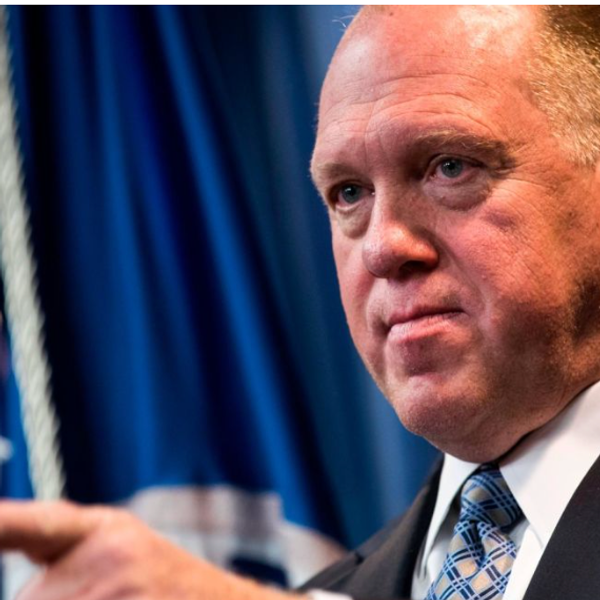On Wednesday, the Huffington Postreported that House Speaker John Boehner (R-OH) is likely to step down from his position after the 2014 midterm elections. According to several of his allies, Boehner wants to “leave a legacy,” but “has had enough of the high political drama and intraparty feuding on Capitol Hill.”
Another former senior aide to the Speaker would be “surprised” if the Ohio congressman sought re-election. And a GOP operative, who spoke on the condition of anonymity, explained that Boehner has only denied the rumors because “the minute you say you [you’re leaving], you’re done.”
He added: “Everybody around him thinks this is his last term.”
Others point out that that even if Boehner does seek re-election, there is a chance that House Republicans will not vote for him to remain as Speaker.
With the growing possibility of Boehner’s departure, speculation has naturally turned to his potential successors. Here are five House Republicans who could end up serving as the 62nd Speaker of the House.
Photo: Gage Skidmore via Flickr.com
Eric Cantor
Boehner’s top deputy in the House, Majority Leader Eric Cantor (R-VA), has long been rumored to covet the Speaker’s gavel.
Cantor, who has served in Congress since 2001, has occasionally clashed with his boss. In January 2013, Cantor criticized Boehner over the “fiscal cliff” deal that the Speaker supported. Boehner’s approval of the deal upset his more conservative counterparts, and American Majority Action spokesman Ron Meyer revealed that “at least 20 House Republicans” discussed unseating Boehner and possibly replacing him with Cantor.
But by spring 2013, Cantor began to slowly move towards the middle, focusing more on issues like “job training and education reform.” The move could be an attempt to appeal to more moderate Republicans, whose support he would need for a leadership run.
Photo: Gage Skidmore via Flickr.com
Paul Ryan
Just a little less than a year ago, House Representative and former Republican VP nominee Paul Ryan (R-WI) was seen as a likely replacement for Boehner.
After voting for a controversial tax increase at the end of 2012 that was backed by Rep. Boehner, Ryan and the Speaker are said to have formed “an important alliance.”
In February, sources close to Ryan – who has worked on a wide range of issues this past year — told Politico that the congressman did not want to challenge Boehner, but expected that Boehner would leave after 2014 to “make way for the next generation of leaders.”
Photo: Gage Skidmore via Flickr.com
Tom Price
Back in 2012, House Representative Tom Price (R-GA) was reported by the National Review “as someone who might be thinking of putting his name into consideration as an option to Boehner.”
In December, Price issued a statement, which said that he had no plans to run for Speaker.
However, that might change by 2014.
In July, Roll Call wrote that Price “has the conservative credentials to attract a lot of support, hails from the vote-rich South, and maintains an outsider’s appeal,” making him a good contender.
Photo: Markn3tel via Flickr.com
Jeb Hensarling
Congressman Jeb Hensarling (R-TX) is another likely replacement for either Boehner or Majority Leader Cantor.
As chairman of the House Republican Conference, Hensarling is known for his strict ideological stances on social and fiscal policies, which would help him attract some of the more conservative votes.
Just this August, the Republican representative caught the attention and support of several other House GOP members and major conservative group Heritage Fund while pushing through comprehensive housing finance reform.
And Hensarling might hold an advantage over other potential contenders; as Roll Call reports, Texas currently holds 24 votes in the conference, which would most likely favor the Texas representative.
Photo: Republicanconference via Flickr.com
Tim Huelskamp
Republican Representative Tim Huelskamp (KS) is the most conservative member of this list. He has never shied away from a fight with the party establishment — for example, he is one of the few GOP members who believe that shutting down the government is the best strategy for combating the Affordable Care Act.
At an August town hall meeting, Huelskamp stated, “I told the speaker of the House, Mr. Boehner, I don’t work for you,” claiming that Boehner had told him how to vote on a variety of issues, and accusing the GOP leadership of not being “aggressive” enough. Needless to say, Huelskamp could attract Tea Party Republicans, but he may face a problem with the rest of his party, which he believes is composed of “weak-kneed Republicans.”
Photo: Gage Skidmore via Flickr.com














